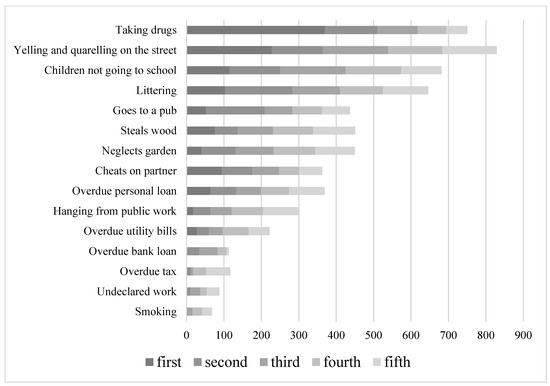Overdue Debts and Financial Exclusion
by Edina Berlinger – Katalin Dobránszky-Bartus – György Molnár
Risks, Volume 9, Issue 9 (September 2021)
Published: 31 August 2021
(This article belongs to the Special Issue Financial Crises and Poverty)
Abstract
We examine the impact of overdue debts in small villages in one of Hungary’s most disadvantaged regions. We find that a significant number of debtors with overdue debts permanently escape from debt collectors. Accordingly, in our sample, overdue debts reduce the likelihood of declared work by 14 percentage points on average. The lack of declared work alone reduces the probability of opening a bank account by 21 percentage points, and overdue debts further reduce it by 9 percentage points. The negative effect of overdue debts on health is almost as large as the positive effect of a high school diploma. In addition, the health-destroying effect extends not only to the debtor but to all members of the household.
Therefore, overdue debts create a poverty trap mechanism exacerbating financial exclusion, hence resulting in significant losses for both the individual and society. We recommend paying more attention to smoothing credit cycles and resolving non-performing debt obligations. View Full-Text
Keywords: financial inclusion; poverty trap; overdue debts; debt relief




